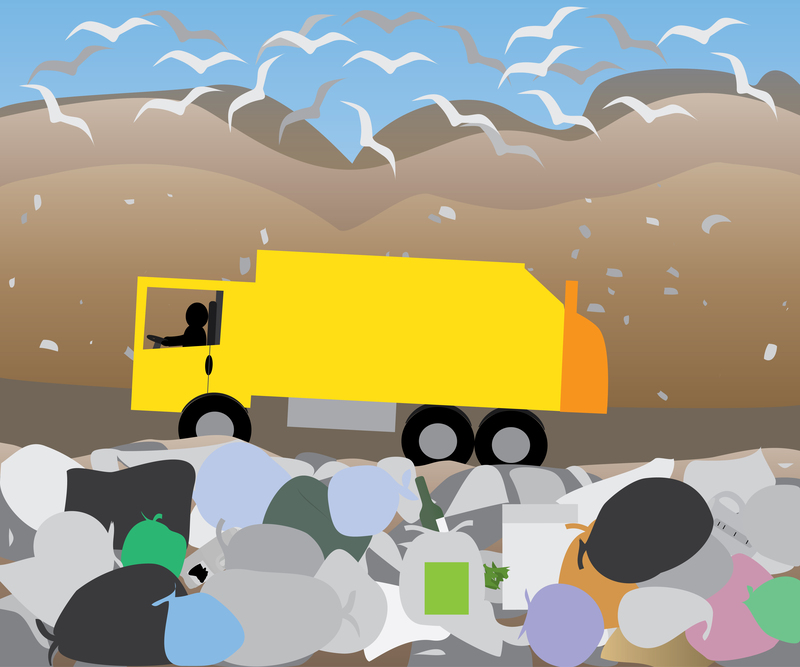Mindful Living: Smart Waste Prevention Tips for Families
In today's fast-paced world, families often find themselves overwhelmed by unnecessary waste--whether it's food, single-use products, or household clutter. Mindful living is about making intentional choices that support the well-being of your home and the planet. By adopting smart waste prevention tips, your family can decrease its ecological footprint, save money, and foster a closer connection to what truly matters. This comprehensive guide will provide practical insights to help your household reduce waste effectively while embracing a more thoughtful, sustainable lifestyle.
Why Mindful Waste Prevention Matters
Waste not only affects the environment by filling landfills and polluting nature but also impacts your finances and quality of life. Mindful waste prevention for families encourages a shift from a throwaway culture to one that values resources, reduces clutter, and strengthens family values. When families prioritize waste reduction, they model responsible behaviors for children, contribute to healthier communities, and make positive changes for the Earth. Let's explore some smart waste prevention ideas that make a real difference.

1. Conduct a Family Waste Audit
Before you can start reducing your waste, you need to understand where it comes from. Conducting a waste audit as a family can be an eye-opening experience and is an excellent first step towards waste prevention.
How to Perform a Home Waste Audit
- Collect your household garbage for a week. Separate food scraps, recyclables, non-recyclables, and compostable items.
- Involve children in sorting waste--turn it into a learning moment about materials and decomposition.
- Discuss which types of waste are most prevalent. Is it plastic packaging, food, or paper?
- Set family goals for reducing the top three waste contributors.
Pro Tip: Document the results by taking photos or making graphs to track your progress over time!
2. Embrace Mindful Shopping Habits
Much household waste begins with shopping habits. With a few adjustments, your family can prevent needless waste right at the source.
Smart Shopping Techniques
- Plan meals ahead: Create shopping lists based on your meal plan to avoid impulse purchases and food waste.
- Buy in bulk: Choose larger, economy-sized containers when possible, or shop at bulk stores using reusable containers.
- Favor minimal packaging: Opt for products with little to no packaging or choose recyclable/compostable materials.
- Shop locally and seasonally: Local goods often use less packaging and travel, reducing both waste and carbon footprint.
Mindful shopping not only reduces waste but also nurtures a more conscious relationship with consumption and resources.
3. Rethink Food Waste at Home
Did you know that the average family wastes hundreds of pounds of food each year? Smart waste prevention in the kitchen is both eco-friendly and budget-wise.
Effective Ways to Prevent Food Waste
- Practice FIFO: First-In, First-Out ensures older products are used before newer ones.
- Store food properly: Use airtight containers for grains, freeze leftovers, and learn the best fridge organization techniques.
- Understand expiration dates: "Best by" doesn't always mean "bad after." Use your senses before tossing food.
- Get creative with leftovers: Transform excess produce into soups, stir-fries, or baked goods.
- Compost kitchen scraps: Composting turns organic waste into nutrient-rich soil for gardens.
*Bonus Tip: Involve children in meal planning and preparation, teaching them the importance of valuing food resources.*
4. Reduce Single-Use Items
Disposable products like paper towels, water bottles, and plastic bags contribute significantly to household waste. Shifting to reusable alternatives not only benefits the environment but can also lead to savings and a simpler life.
Swap Single-Use for Sustainables
- Cloth napkins and towels instead of paper versions
- Reusable shopping bags and produce sacks for all grocery trips
- Stainless steel or glass water bottles and food containers
- Beeswax wraps rather than plastic wrap for food storage
- Rechargeable batteries for electronics and toys
Tip for Parents: Let your kids pick their own reusable water bottles or lunch boxes to encourage ongoing use!
5. Organize & Declutter Regularly
Mindful families know that organized spaces reduce stress and prevent unnecessary purchases. A cluttered home often results in forgotten items, expired goods, and excess waste. Practicing regular decluttering ensures your belongings are purposeful and used.
Decluttering With Less Waste
- Sort and donate: Give gently used clothes, toys, and household goods to charity or share with neighbors.
- Sell unwanted items: Use online platforms for selling; this extends product life and benefits others.
- Repair instead of discard: Teach children how to sew, glue, or repurpose broken items.
- Host swap parties: Trade items with friends and other families--it's fun and eco-friendly!
Reducing clutter supports mindful habits and keeps your home more peaceful and tidy.
6. Introduce Mindful Recycling and Composting
While recycling isn't a substitute for reducing waste, it's still a vital part of responsible household management. Composting organic waste also diverts a substantial amount from landfills.
Family-Friendly Recycling Tips
- Learn local recycling rules: Create a cheat sheet or poster for family reference.
- Set up a recycling center: Position bins in accessible places; label clearly for paper, cans, plastics, and more.
- Involve children: Turn recycling into a daily routine and make it a rewardable "chore."
Easy Backyard Composting Steps
- Use a bin or pile: Place compost near your garden or back yard.
- Add green and brown materials: Combine fruit/veggie scraps, coffee grounds, leaves, and shredded paper.
- Turn compost regularly to maintain airflow and aid decomposition.
- Harvest rich soil after a few months to fertilize your garden or houseplants.
Teaching children about composting encourages respect for natural cycles and healthy soil.
7. Practice Conscious Gifting and Celebrations
Holidays and birthdays can unintentionally create excessive trash and packaging. By embracing mindful gifting and eco-friendly celebrations, families can enjoy festive moments with less waste.
Low-Waste Gift Ideas
- Gift experiences (museum passes, classes, nature hikes) rather than physical objects
- Homemade gifts like crafts, baked goods, or hand-written letters
- Wrap gifts in reusable fabric (furoshiki), baskets, or newspaper
- Request no gifts or organize a donation drive for charities
Celebrating intentionally fosters lasting family memories and nurtures gratitude and creativity.
8. Create a Family Mindfulness Routine
Building a mindful living routine emphasizes daily intention and reflection. This, in turn, helps families stay motivated and enjoy the journey toward smart waste prevention.
Simple Practices for Every Family Member
- Regular check-ins: Weekly "eco family meetings" to share progress and set goals
- Mindful moments: Encourage gratitude before meals for the food and people who produced it
- Shared responsibilities: Rotate tasks like meal planning, recycling, or compost supervision
- Celebrate accomplishments: Reward milestones with family activities, not material objects
Integrating these habits helps reinforce sustainable values and strengthens family bonds.
9. Educate, Empower, and Involve Kids
Children are natural learners and enthusiastic helpers. By including them in your waste prevention journey, you're raising eco-conscious leaders for tomorrow.
Fun Ways to Engage Kids in Sustainable Living
- DIY upcycling projects (turning jars into vases, old t-shirts into bags)
- Eco-themed story time and documentaries
- Composting or gardening as family science experiments
- Art from recycled materials
- Involving kids in grocery shopping and meal prep to teach food stewardship
Empowering children to make mindful choices fosters their confidence and reinforces family values of sustainability.

10. Embrace Community and Share Resources
Waste prevention is even more powerful when practiced as a community. By connecting with neighbors, local organizations, or schools, your family can share resources and amplify positive impact.
Community-Oriented Smart Waste Ideas
- Join or start a neighborhood swap group for toys, clothes, or household goods
- Participate in local clean-up days or recycling initiatives
- Support community gardens and compost programs
- Collaborate on bulk food purchases to reduce packaging
- Encourage schools to minimize lunchroom waste and promote recycling
Building a local network reduces isolation, strengthens community bonds, and reinforces environmentally-friendly habits.
Conclusion: Your Family's Path to Smart, Mindful Waste Prevention
Mindful living offers families a pathway to wellness, savings, and a healthier planet. By thoughtfully applying these smart waste prevention tips, your family will not only reduce its environmental impact but also create a calmer, more intentional living space. Start small--perhaps with one or two suggestions from this guide--and build on your successes. Remember, the journey toward mindful waste prevention is about progress, not perfection. Every step counts toward a cleaner, greener future for your loved ones and generations to come.
Related Resources:
Embrace mindful living and empower your family to make a difference. Begin your smart waste prevention journey today!